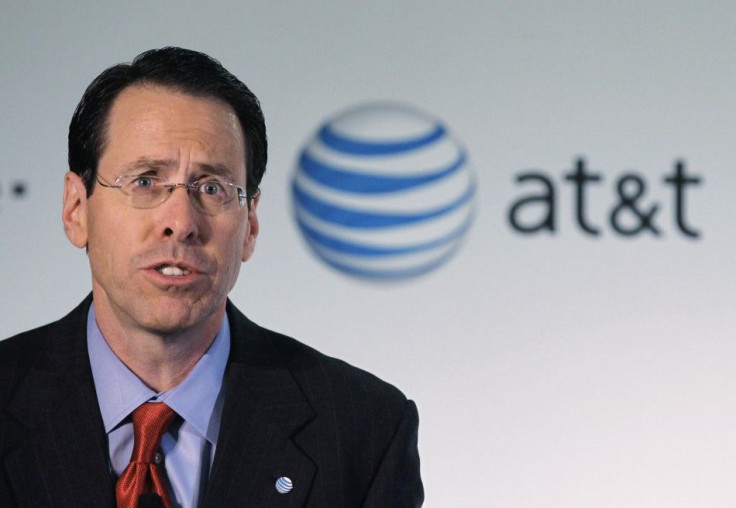AT&T CEO: Customers to Face Higher Prices if T-Mobile Merger Fails

Wireless customers will face higher prices if the federal government blocks AT&T's bid to purchase T-Mobile USA, according to AT&T Chief Executive Officer Randall Stephenson.
Speaking at Bloomberg's Captain of Industry series, Stephenson said AT&T's capacity to keep up with wireless demand has been strained and Congress hasn't adequately addressed antiquated policies regarding the wireless industry.
Regulators can't keep up with the changes in the industry, Stephenson said, according to Bloomberg.
AT&T frequently cites the need for additional wireless spectrum when discussing public benefits. As people increasingly use data on smartphones, the amount of spectrum available to meet the data use has been in shorter supply. Wireless carriers have been looking for ways to obtain more wireless spectrum in order to meet growing demand.
A House subcommittee recently approved the Jumpstarting Opportunity with Broadband Spectrum (JOBS) Act, which would give financial incentives to broadcasters to turn in unused spectrum to the FCC, which would then be sold to wireless companies. AT&T supports the legislation, which now awaits a vote by the full House Energy and Commerce committee.
Not everyone buys AT&T's claims that the merger will benefit the public. Last month, the Federal Communications Commission came out in opposition to the merger and published a report slamming AT&T's claims.
We conclude that [AT&T and T-Mobile] have failed to meet their burden of proof to show that the proposed transaction is in the public interest, the report said. Harm to competition could take the form of an increase in price (or a reduction in the rate of price decline), a reduction in output or service quality, or a reduction in the rate of new product development or other innovation.
The commission, which must sign off on telecommunications mergers, planned to call for an administrative hearing regarding the deal. Yet AT&T withdrew its merger request and plans to seek approval at a later date.
The U.S. Department of Justice hasn't bought AT&T's claim either. The Justice Department in August filed a lawsuit in the U.S. District Court of Washington D.C. to block the merger. The department expressed concern that the $39 billion transaction would lead to less competition in the wireless market, leading to weaker service and higher prices. The trial is set to begin Feb. 13.
If the AT&T/T-Mobile merger doesn't get approved, AT&T will have to pay a $4 billion charge to T-Mobile's parent company, Deutsche Telekom. This payment will come in the form of $3 billion in cash and $1 billion worth of wireless spectrum.
Shares of AT&T are up 0.17 percent to 28.91 in mid-morning trading.
© Copyright IBTimes 2024. All rights reserved.





















